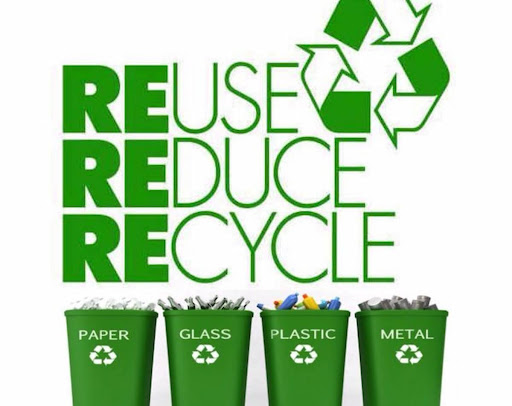We all need that type of future that waste reduction is attempting to establish. Merely prioritising environmental sustainability is insufficient; ensuring a healthier and more sustainable future for all is equally imperative. To help manage large volumes of waste efficiently, consider using skips for hire services, which provide convenient and effective solutions for both residential and commercial waste reduction needs. Therefore, let us delve into the significance of waste reduction and explore practical strategies to achieve it.
The Power of Reduce, Reuse, and Recycle
Everyone has heard the adage “reduce, reuse, recycle.” Comparable to the sacred trinity of waste control. However, what does it essentially imply in our daily existence?
Use Reusable Bags, Bottles, and Containers
Consider for a moment the abundance of plastic bottles and containers that we utilise. They amass rapidly! The adoption of reusable containers, bottles, and backpacks is a paradigm shift. They not only reduce plastic waste but also ultimately save you a couple of dollars. Moreover, an increasing number of retailers are yielding discounts to customers who bring their own luggage. Each wins!
Avoid Single-Use Products and Packaging
Single-use items represent the very definition of waste. While certainly practical, their persistence can extend for centuries, which is considerably longer than desired. Small adjustments can have a significant effect.
Composting Organic Waste
Do you have culinary scraps? Commence the process of decomposition rather than discarding. By converting organic waste into nutrient-rich soil, composting reduces waste sent to landfills and improves the condition of the planet.
Donate or Sell Items You No Longer Need
Do you have anything you no longer use? Perhaps someone else could benefit from it! Not only does donating or selling commodities benefit others, but it also prevents the disposal of usable products. Local thrift stores, Craigslist, eBay, and similar platforms are ideal for rehoming your items.
Support Businesses That Practice Sustainable Waste Management
Finally, demonstrate what you preach with your actions. Endorse businesses that place a premium on sustainability. By operating waste-free operations and utilising eco-friendly packaging, these companies are at the forefront of waste reduction. You are casting a vote for a greener planet by voting for them.
The Promise of Waste-to-Energy Facilities
Regarding technological marvels, allow me to introduce waste-to-energy (WTE) facilities. These facilities convert non-recyclable refuse into usable energy. Doesn’t that sound like science fiction? However, it is genuine and occurring right now. It is akin to accomplishing two objectives at once: reducing waste and producing energy. This technology is an essential step towards a sustainable future, not merely a pipe fantasy.
Waste Reduction Strategies That Work
Therefore, how do we become truly committed to reducing waste? It is critical to implement intelligent strategies.
Minimize Packaging
Extraordinary packaging is among the leading causes of waste. By advocating for reduced packaging, waste can be substantially reduced. Organisations have the option to select minimal, environmentally sustainable packaging alternatives. We can choose products with minimal packaging or purchase in abundance as consumers.
Encourage Reusable Products
Promoting the reuse of products is an additional efficacious approach. Reusable items must become the norm. Achieving widespread adoption of reusable items, such as coffee cups and purchasing bags, would result in an enormous reduction in waste.
Support Bulk Purchasing
Purchasing in volume can significantly reduce waste. It decreases the necessity for single-use packaging and frequently results in cost savings. Additionally, less petroleum consumption and time saved are results of fewer visits to the store. A modest habit that yields a significant benefit.
The Importance of Waste Audits and Assessments
How do we determine our current waste situation? Waste audits and assessments serve this purpose. These audits thoroughly examine our waste pathways, enabling us to precisely identify areas where reductions can be made. Through examination of waste materials, audits have the ability to detect potential avenues for waste reduction and recycling. By employing this customised approach, waste management strategies are rendered precise and efficacious. It is comparable to possessing a road map towards achieving zero waste.
Tailor Waste Management Strategies to Specific Contexts
Given the inherent variability among locations, waste management strategies must be customised to suit particular contexts. Whether it pertains to a single household, a commercial enterprise, or an entire municipality, it is critical to comprehend the distinct waste patterns and requirements. Tailored strategies result in increased waste reduction efficiency and effectiveness.
Conclusion
Waste reduction is an absolute necessity, not merely a trendy term. We can lay the groundwork for a sustainable future by adopting approaches such as reduction, reuse, and recycling, providing support to WTE facilities, and executing intelligent strategies. It involves making conscious decisions on a daily basis, including the products we purchase and the manner in which we dispose of our refuse. Together, we can construct a greener, cleaner world and turn the tide on pollution. Consequently, we must immediately roll up our sleeves and begin working, as our future is in stake.
Waste reduction is crucial to achieving a sustainable future. By minimizing waste, we conserve natural resources, reduce pollution, and decrease greenhouse gas emissions, thus protecting the environment. Effective waste management strategies, such as recycling, composting, and reusing materials, contribute to a circular economy, promoting long-term ecological balance.
Additionally, waste reduction fosters responsible consumption and production patterns, encouraging individuals and businesses to adopt sustainable practices. Ultimately, prioritizing waste reduction is essential for preserving our planet’s health and ensuring a sustainable future for generations to come.
Visit slangfeed for more informative articles.


